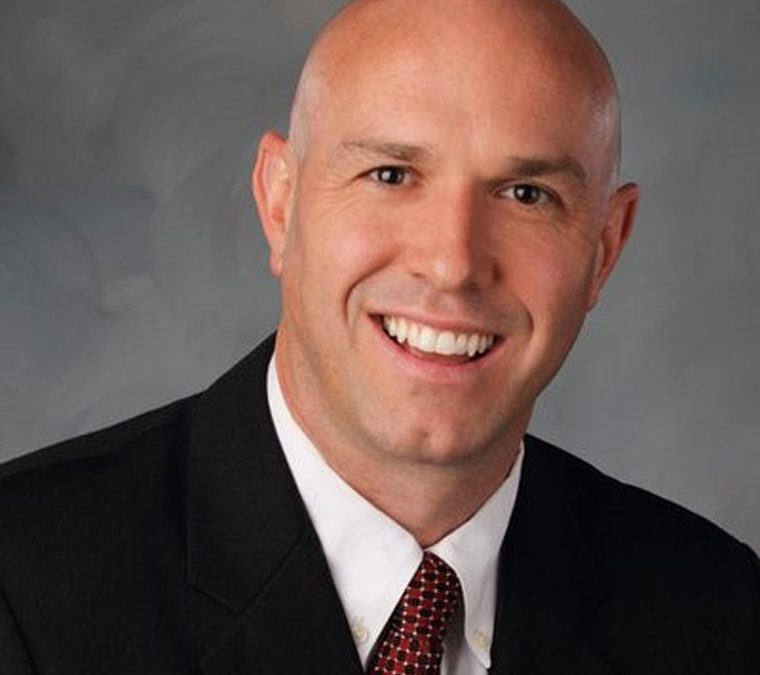By Eileen Jevis | Staff Writer
The three pillars of a Catholic education in the Diocese of Syracuse are faith, excellence and service. They are not just the tradition of the Diocese, but are the guiding principles that teachers, administrators, parishioners and pastors practice each and every day.
William W. Crist, superintendent of the Syracuse Catholic Schools, said these pillars guide and direct them as they focus on faith-based service to students and families. To improve efficiency and sustainability and remain competitive in the field of education, the diocese partnered with the Excellence with Integrity Institute (EWII) to assist them with their goals and objectives.
EWII is an organization that helps Catholic schools strengthen their image, impact and accountability. The company created the Catholic School Improvement Survey (CSIS)—an instrument that gathers feedback and data from students, parents and staff with the goal of providing strategies that will improve and maintain a quality education.
“The Institute’s main focus is on research and development of instructional resources, assessment solutions and tools and strategies for organizational culture development,” explained Matt Davidson, Ph.D., president of EWII. “The education office at the Syracuse Diocese has created a culture of continuous improvement to be more responsive to students and parents about their Catholic education experience. Through data collection and conversations, the diocese is able to implement a plan and put it into action.”
“Matt’s experience and relationship with us as a member of Syracuse Diocese has been very beneficial,” said Crist. “To have Matt’s group based in Syracuse—someone who works with national and international organizations—is the Holy Spirit guiding us.”
The two met at a conference in Arizona. They talked about the need to create a survey to be distributed throughout the diocese. The timing of the initiative coincided with the accreditation process that identifies strengths, assesses areas in need of improvement and maps out steps for enhancement. “We are just finishing our seven-year accreditation process,” explained Crist. “We can use the data we are collecting to show the accreditation board that we are making continuous improvements. It validates that we are heading in the right direction.”
Crist said the schools have responded to the feedback provided by parents and faculty by enhancing academic programming. Each of the high schools has bolstered its Advance Placement (AP) courses. “Ninety-eight percent of our students are college bound,” said Crist. “Parents want their child being looked at from the college of their choice.”
Bishop Ludden Jr./Sr. High School now offers an International Baccalaureate (IB) Diploma Programme that provides a challenging and balanced program of study to talented and motivated 11th– and 12th-graders around the world. “Two-thirds of our students are taking at least one IB course at this time,” said Heidi Busa, IB coordinator. Busa said the students who are taking college-level courses at Bishop Ludden are developing skills that will prepare them for college and the workforce. “Colleges are aware of the IB program and give those students special consideration for admission because they are aware of the level of work the students have completed,” she said.
Additionally, based on parents’ requests, enhanced comprehensive language programs for the elementary students have been added. “We now have a deeper offering of foreign languages which include Latin, Mandarin and Chinese as well as our current teaching of Spanish and French,” explained Crist.
During the pandemic, when most public schools were forced to move to virtual instruction, the diocese was able to continue in-person learning. As a result, enrollment increased in K-6. Nancy Ferrarone, principal of Immaculate Conception School, said the survey resulted in positive feedback from the parents and teachers. “There was shared positivity with regard to the safety precautions that Immaculate Conception put into place to remain fully open during the pandemic,” said Ferrarone. “Despite all the extra protocols being followed, parents were grateful their children’s school experience was ‘normal’ and teachers felt safe and confident.” It is this practice of open dialogue and continuous communication that helped administrators to navigate and direct a new way of teaching and learning.
“We really do take the feedback from these surveys seriously as we continue to offer a high-quality education rooted in our Catholic faith,” added Pat Kinne. Kinne, the assistant principal at Bishop Grimes Jr./Sr. High School, has two children in Catholic schools in the diocese. Through the survey process, parents and teachers identified the need for updated technology at Bishop Grimes. “We have since updated all of our technology that our students and faculty members are using. Each student and teacher receives an iPad that has become their primary school supply.”
Whether enhancing the curriculum, updating technology or increasing enrollment and retention, the Catholic schools in the Syracuse Diocese never waiver in their mission—to keep faith as the foundation of who and what they are.
“Catholic education has provided such a solid pathway generation after generation,” said Ferrarone. “And while our strong faith remains constant and at the heart of all we do, I appreciate the work of the Catholic School Improvement Program to ensure that our academics and learning environments are forward-moving to meet the needs of changing times.”







